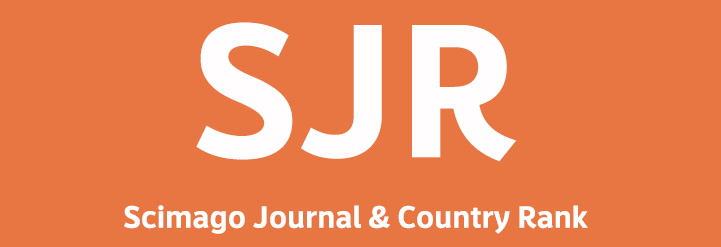Oligocene Palynology Of On-Shore West Java
DOI:
https://doi.org/10.29017/SCOG.35.2.779Keywords:
Palynology, Oligocene, On-shore West JavaAbstract
Compared to its counterpart in the off-shore area (including Northwest Java and Northeast Java), the Oligocene sediment of on-shore West Java provides low pollen assemblages. In addition, superwet elements of Dacrydium and Casuarina commonly occurred in off-shore area are less represented in the on-shore area. However, it is believed that the study area still experienced wet climate condition as proved by common occurrence of rattan pollen Dicolpopollis spp. indicating a thick growth of swamp forest under moist climate. Unlike its counterpart in the off-shore North West Java, the studied sediment rarely yields lacustrine elements suggesting the disappearance of lake deposit. The Oligocene sediment of on-shore West Java is defi ned by the regular appearance of Oligocene marker of pollen Meyeripollis naharkotensis. The last occurrence of this pollen marks the top Oligocene age. In fact, the appearance of pollen M. Naharkotensis is obviously used to separate Oligocene age from Miocene age in the off-shore area. Moreover, marine micropaleontology analysis on foraminifers and calcareous nannoplankton confi rms this age. The studied sediment was deposited in the transition to shallow marine environment as indicated by rare occurrence of marine microfossils. The common brackish pollen of Zonocostites ramonae (Rizophora) and Spinizonocolpites echinatus (Nypa) indicates mangrove/ back-mangrove environment. Moreover, the domination of shallow water benthonic over the planktonic forms suggests shallow marine setting.
References
Adams, C. G., 1970. Reconsideration of the East
Indian Letter Classifi cation of the Tertiary. Bull. Brit.
Mus. (Nat. Hist.). vol.19 (3).
Adnan, A., Sukowitono and Supriyanto. 1991.
Jatibarang Sub Basin – A Half Graben Model in the
On-shore of Northwest Java. Proceedings Indonesian
Petroleum association, Twentieth Annual Convention,
Volume I: Exploration and Geothermal.
Blow, W.H., 1969. Late Middle Eocene to Recent
Planktonic Foraminiferal Biostratigraphy. In Proc. 1st
Int. Conf. Plank. Microfossils. pp. 191-422.
Lelono, E. B., 2000. Palynological Study of the Eocene
Nanggulan Formation, Central Java, Indonesia.
Unpublished PhD Thesis. University Of London.
Lelono, E. B. 2001. Revisi Zonasi Polen Eocene.
Lembaran Publikasi Lemigas, Volume 35, Nomer 1,
pp. 16-26.
Lelono, E. B. 2006. Eocene-Oligocene Climate
Based on Palynological Records. Lemigas Scientifi c
Contributions to Petroleum Science and Technology,
Volume 29, Number 2, pp. 10-23.
Lelono, E. B. and Morley R. J., 2011. Oligocene
Palynological Zonation Scheme From East Java Sea.
Scientific Contribution Oil and Gas, Volume 34,
Number 2, pp 95-104.
Martini, E., 1971. Standard Tertiary and Quaternary
Calcareous Nannoplankton Zonation in Farinacci,
A. (Ed), Proc. 2nd Plank. Conf. Roma, pp. 739-784.
Edizioni Tecnoschienza, Roma.
Morley, R. J., 1977. Floral Zones Applicable to
Neogene of Eastern Kalimantan. Unpublished Report.
pp. 1-5.
Morley R.J., 1991. Tertiary stratigraphic palynology
in South-East Asia; current status and new directions.
Proceedings of the Geological Society of Malaysia 28,
pp 1-36.
Morley, R. J., 2000. Origin and Evolution of Tropical
Rain Forests. Wiley, London.
Rahardjo, A. T., Polhaupessy, A. A., Wiyono, S.,
Nugrahaningsih, L. and Lelono, E. B., 1994. Zonasi
Polen Tersier Pulau Jawa. Proc. IAGI, 23rd Annual
Convention.
Downloads
Issue
Section
License
Copyright (c) 1970 SCIENTIFIC CONTRIBUTIONS OIL AND GAS (SCOG)

This work is licensed under a Creative Commons Attribution 4.0 International License.
Authors are free to Share — copy and redistribute the material in any medium or format for any purpose, even commercially Adapt — remix, transform, and build upon the material for any purpose, even commercially.
The licensor cannot revoke these freedoms as long as you follow the license terms, under the following terms Attribution — You must give appropriate credit , provide a link to the license, and indicate if changes were made . You may do so in any reasonable manner, but not in any way that suggests the licensor endorses you or your use.
No additional restrictions — You may not apply legal terms or technological measures that legally restrict others from doing anything the license permits.














